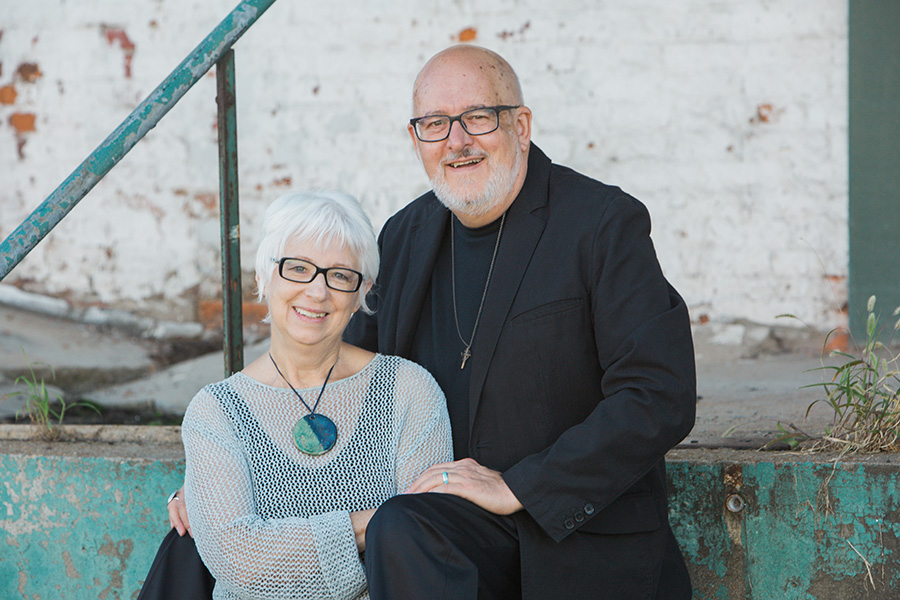From 1983 through 2020 Margie and Denis Haack wrote, taught and mentored as Ransom Fellowship. An archive of their writing from that period can be found here. They plan to continue to write—and post here—the same sort of articles, reflections and discussion guides that were regularly published in print in Critique and Letters from the House Between.

In May 2021, Margie will publish three books. The Exact Place (a coming to faith childhood memoir with a new epilogue by Margie). This Place (formerly called God in the Sink, updated and with an additional eight new chapters and a new forward by Zack Eswine). And No Place (with a forward by Andi Ashworth), a sequel to The Exact Place telling her story from the time she left the farm to attend college, met Denis and they began to walk together through doubt into spiritual reality. The Place trilogy can be purchased from Square Halo Books and Hearts and Minds Books.
Denis graduated summa cum laude with a Master of Arts in Theological Studies from Covenant Theological Seminary (St. Louis, MO), where he also taught courses in Film & Theology and Small Group Ministry as a visiting instructor. His primary interest is in cultural discernment, where the truth of God’s word is brought creatively into tension with life in our fallen and increasingly pluralistic and post-Christian world. Both Margie and Denis have been frequent speakers at L’Abri Fellowship as well as at church retreats and conferences.
Over these many decades, the Haacks have sought to demonstrate and teach how historic biblical Christianity can be applied in life-giving ways to nurture wisdom and human flourishing. The things they have stood for include:
- That we are not called to the extraordinary and the spectacular but to be faithful in the ordinary and the routine of our lives. God may choose to do something extraordinary with our faithfulness, but that is his concern, not ours.
- Related to that, we should heed St Paul’s instruction “to make it your ambition to lead a quiet life” (1 Thessalonians 4:11). Contentment is a virtue.
- We should provide warm hospitality and the sharing of lives, stories and ideas over simple meals with neighbors and colleagues, including those very different from ourselves.
- As an expression of love, we should give the gift of unhurried conversation and careful listening.
- That every person is created in God’s image and must be treated with dignity, significance, equality and justice.
- That honest answers should be provided for honest questions, including saying “I don’t know,” when we don’t know.
- We are called to follow St James’ counsel to be “quick to hear, slow to speak, slow to anger,” which is far from automatic in an age when outrage is multiplied and cheered on social media.
- We can learn to speak of the faith creatively, winsomely, seeking to persuade rather than using formulas or verbal bullying to get people to believe in Christ, or anything else, for that matter.
- In all of this, we are to live intentionally as exiles, resident aliens in a broken pluralistic world that is far more like ancient Babylon than ancient Jerusalem.
